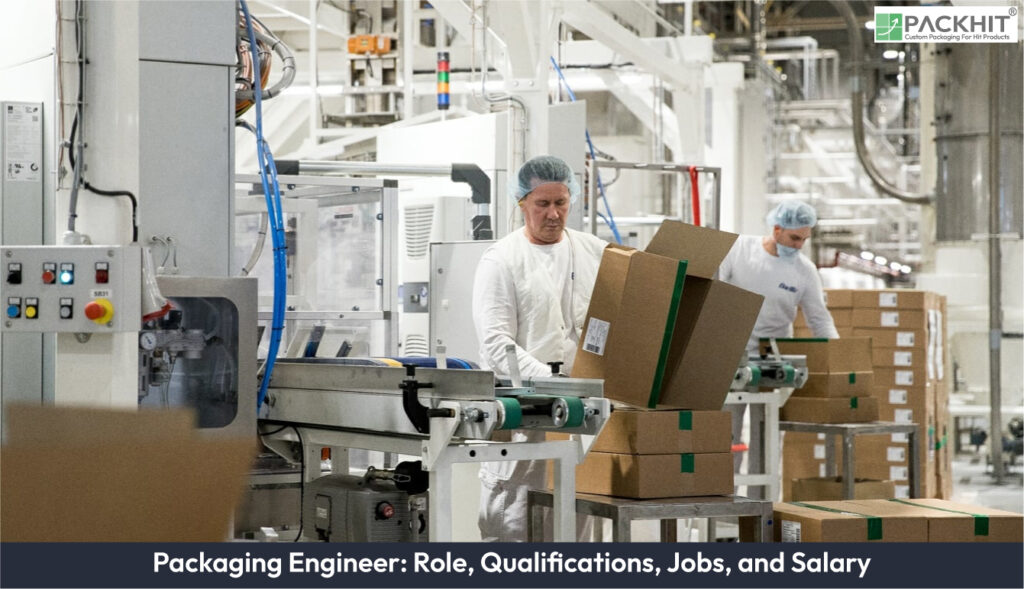A Packaging Engineer is a specialized professional responsible for designing, developing, and optimizing packaging solutions that balance functionality, aesthetics, and sustainability. Their role spans multiple industries, including consumer goods, food and beverage, and industrial products, where they ensure product safety, regulatory compliance, and cost efficiency. With an average annual salary of $88,452 in the United States, Packaging Engineers are integral to modern manufacturing, leveraging technical expertise, creativity, and emerging technologies such as smart packaging and sustainable materials.
What is the Role of a Packaging Engineer?
Packaging Engineers design and develop packaging systems that protect products during transportation, storage, and use while meeting aesthetic and branding requirements. Their responsibilities include selecting appropriate materials, creating prototypes, and ensuring compliance with industry standards and regulations. They also oversee manufacturing processes, such as cutting, folding, and assembly, to ensure packaging meets size and quality specifications. Tools like dieline diagrams are often employed to guide these processes.
In addition to technical design, Packaging Engineers manage packaging redesign projects to align with evolving regulatory requirements, such as FDA compliance for food and pharmaceutical products. They also play a pivotal role in integrating sustainable practices, including the use of recyclable materials and optimizing designs to reduce waste.
Key Functional Roles
- Designing packaging solutions that ensure product safety and user convenience.
- Enhancing the visual appeal of packaging to align with branding strategies.
- Implementing sustainable packaging practices to minimize environmental impact.
- Managing compliance with industry-specific regulations, such as FDA guidelines.
What Qualifications Are Required to Become a Packaging Engineer?
A Packaging Engineer typically holds a bachelor’s degree in packaging engineering, mechanical engineering, or a related field. Coursework often includes material science, structural design, and manufacturing processes. Post-employment training, lasting 6 to 12 months, is common and focuses on developing job-specific skills and techniques.
Certifications can further enhance a candidate’s qualifications. Examples include the Certified Packaging Professional (CPP) credential and certifications in quality or reliability engineering. These credentials validate expertise in areas such as material selection, sustainability, and regulatory compliance.
Essential Skills
- Proficiency in computer-aided design (CAD) software for creating and analyzing packaging designs.
- Strong problem-solving skills to address challenges in material selection and manufacturing.
- Knowledge of sustainability principles and their application in packaging design.
- Effective communication skills for collaborating with cross-functional teams.
What Career Paths Are Available for Packaging Engineers?
Packaging Engineers can pursue diverse career paths across industries such as consumer goods, pharmaceuticals, and logistics. Entry-level roles often involve assisting in design and testing, while mid-level positions may include project management and regulatory compliance oversight. Senior roles, such as Packaging Development Manager, focus on strategic initiatives like sustainability and innovation.
Emerging trends, such as smart packaging technologies and the integration of AI in design processes, are creating new opportunities for specialization. Engineers with expertise in these areas are increasingly in demand, particularly in industries prioritizing sustainability and digital transformation.
Industries Employing Packaging Engineers
- Food and Beverage: Ensuring product freshness and compliance with safety standards.
- Consumer Electronics: Designing protective packaging for fragile components.
- Pharmaceuticals: Developing tamper-evident and child-resistant packaging.
- Logistics: Optimizing packaging for efficient transportation and storage.
What is the Average Salary for a Packaging Engineer?
The average annual salary for a Packaging Engineer in the United States is $88,452, equivalent to approximately $43 per hour. Salaries typically range from $65,000 to $118,000, depending on factors such as experience, industry, and geographic location. Entry-level positions generally start at the lower end of the scale, while senior roles in high-demand industries can command salaries at the upper end.
According to the U.S. Bureau of Labor Statistics, the competitive salary range reflects the specialized skills and technical expertise required for the role. Additionally, the growing emphasis on sustainability and smart packaging technologies is expected to further enhance earning potential in the field.
What Are the Emerging Trends in Packaging Engineering?
Sustainability is a dominant trend in packaging engineering, with increasing demand for recyclable and biodegradable materials. Engineers are also exploring lightweight designs to reduce material usage and transportation costs. Smart packaging technologies, such as QR codes and temperature-sensitive labels, are gaining traction, particularly in the food and pharmaceutical sectors.
The integration of AI and machine learning in packaging design is another emerging trend. These technologies enable engineers to optimize designs for cost, sustainability, and performance. Additionally, advancements in CAD software are enhancing collaboration and efficiency in the design process.
Future Outlook
The role of Packaging Engineers is expected to evolve as industries prioritize sustainability and digital transformation. Engineers with expertise in smart packaging and sustainable materials will likely see increased demand. Furthermore, the global focus on reducing plastic waste and improving supply chain efficiency underscores the critical importance of this profession.

